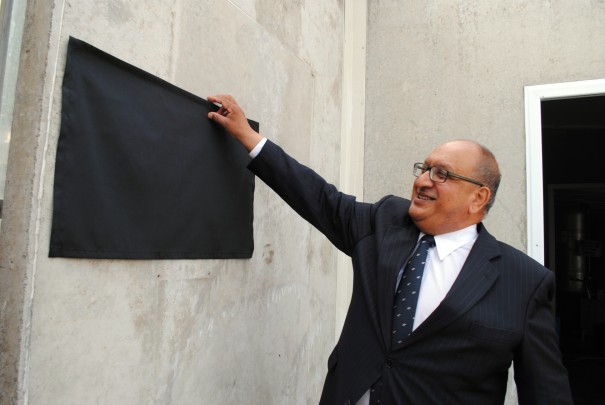Taratahi Agriculture Training Centre

For more photos, click here.
I begin by greeting everyone in the languages of the realm of New Zealand, in English, Māori, Cook Island Māori, Niuean, Tokelauan and New Zealand Sign Language.
Greetings, Kia Ora, Kia Orana, Fakalofa Lahi Atu, Taloha Ni and as it is the morning (Sign)
I then specifically greet you: David Nelson, and Donovan Wearing, Deputy Chair of the Board and Chief Executive respectively of Taratahi Agriculture Training Centre; Stephen Carr, Business Development Manager; staff; students; Distinguished Guests otherwise; Ladies and Gentlemen.
It is a great pleasure to visit Taratahi Agricultural Training Centre here in the Wairarapa.
I have been asked to officially open the new extension to the Dairy Shed and unveil a plaque but before I do, I would like to speak about the significance of agriculture in New Zealand life and in the economy.
Since I was appointed as Governor-General in 2006, I have had a strong connection with rural and provincial New Zealand. A decade before that as one of the country’s Ombudsmen likewise made me aware of a number of rural issues.
The location of Taratahi’s main campus here in the Wairarapa, is no doubt aligned with the fact that this district is well known for its agricultural industries, including forestry, cropping, sheep, beef, deer and dairy farming and is thus a perfect location for such a training establishment.
Since 1919, when this training centre was established, many New Zealanders have graduated with learned expertise in this country’s primary industries. It is of significance that more than 90 years ago, the need for formal agricultural training was recognised and this training centre established, perhaps as a result of the “grasslands revolution” where New Zealand had an extraordinary transformation from forests, swamps and tussock-lands to farms between 1840 and 1930.
Much has changed over the time that Taratahi was established. There was a period when school leavers with only average grades were often encouraged into agriculture. While there will also be a strong element of manual labour in primary industry, the successful farmers are increasingly those with further qualifications like the ones students here are working towards. The primary skills of a tertiary education—being able to tackle problems by critically analysing often complex information—is as valuable on the farm as it is in business.
It was once said that modern New Zealand was built upon grass. While that was an exaggeration when it was written more than 50 years ago, it pinpoints an important truth. While New Zealand’s economy has greatly diversified in recent years, it remains a fundamental fact that, for the foreseeable future, much of New Zealand’s wealth and prosperity will rest on the success and innovation of its primary industries.
New Zealand farmers have long been known for their innovative solutions in response to this country’s unique soil, climatic and topographical features. From flat, to undulating to mountainous farmlands which vary from alpine to sub-tropical climates, innovation in New Zealand farming practice is integral to its continued success.
The challenges faced by New Zealand’s primary industries are many and varied. They extend beyond the more immediate concerns of currency fluctuations or capital structures, to deeper issues of the environment, education and communication.
The point was well made by my predecessor, Lord Bledisloe, who took a great interest in matters agricultural. While his comments were made at the height of the Great Depression of the 1930s, they bear an uncanny resonance with today. He said:
“It is safe to prophesy that whatever alleviation of transient economic distresses …maybe effected by international fiscal adjustments and preferences, the victory in the inevitably fierce competition between the world’s primary producers will rest ultimately with those countries which recognise the economic value of scientific research and apply its findings without undue delay to the winning of wealth from the soil.”
May I congratulate each of you students for your dedication in learning the practical, technical and theoretical skills needed to be successful in your chosen career in agriculture. Your success will have a direct link to New Zealand’s economic success and I wish each one of you the very best in your pursuits.
Thanks are also due to Taratahi Agriculture Training Centre and its staff. Without training institutions such as these, the new generation of farmers would not be nearly as prepared to tackle the demands of such a career.
Taratahi’s dedication to providing training with appropriate and ample facilities is demonstrated by the new Dairy Shed extension, which I am told increases the number of cows that can be milked at the same time.
And on a note, therefore, of appreciation and anticipation in the successful futures of Taratahi and its graduates, I will close in New Zealand’s first language Māori, by offering everyone greetings and wishing you all good health and fortitude in your endeavours.
No reira, tēnā koutou, tēnā koutou, kia ora, kia kaha, tēnā koutou katoa.
It now gives me great to pleasure to announce the new Dairy Shed extension officially open.
